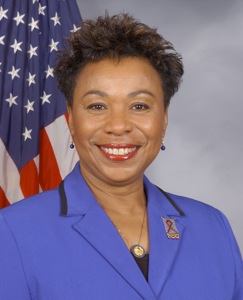-
- Washington state lawmaker’s Spokane scandal is latest case to show the city’s sordid side
- Senate panel tables domestic partnerships
- Moms passed HIV to kids by pre-chewing food
- Civil rights groups, others seek end to ban on U.S. federal funding
- Municipalities barred from joining lawsuit over gay rights
- Gay Mormon group asks for meeting with new church president
- National News Briefs
- World News Briefs
national
Civil rights groups, others seek end to ban on U.S. federal funding
Advocates say funding for needle-exchange programs could slow rate of HIV
Published Thursday, 14-Feb-2008 in issue 1051
NEW YORK (AP) – Seeking bold action to stem the HIV/AIDS epidemic among black Americans, civil rights and other groups Thursday urged Congress to repeal a 20-year-old U.S. ban on federal funding for needle-exchange programs.
More than 200 such programs have been established locally and regionally across the United States, with the aim of slowing the rate of HIV infection among drug addicts who might otherwise use contaminated needles.
Advocacy groups say the ban on federal funding leaves many of these programs in a shaky financial position while deterring many local and state officials from supporting needle exchange.
“We are talking about saving lives,” said Allan Clear, executive director of the Harm Reduction Coalition, which coordinated the lift-the-ban campaign to coincide with National Black HIV/AIDS Awareness Day.
Other groups supporting a repeal of the ban include the National Association for the Advancement of Colored People and the National Urban League.
Blacks are disproportionately affected by HIV/AIDS. Though they make up only 13 percent of the U.S. population, they accounted for roughly half of new HIV cases in 2005, according to federal figures. Injection drug use is now blamed for causing roughly a third of new HIV cases in the United States – and it accounts for a higher proportion of cases among blacks than among whites.
Advocates of needle exchange say the programs reduce disease transmission and bring more drug addicts into supportive facilities where they can obtain social services and be offered treatment.
“They do not encourage drug use,” said lawmaker Barbara Lee, one of the leading congressional opponents of the ban. “These programs are the way you really reach these drug users and help them end their addiction.”
However, opposition to the programs is entrenched, with skeptics questioning the health benefits of needle exchange and its ability to help addicts break their habit.
Dr. David Murray, chief scientist with the Office of National Drug Control Policy, is among those supporting the federal ban. He would prefer that the limited pool of federal funds for drug-related programs be devoted to treatment aimed directly at ending addiction.
“Needles are not the magic bullet,” Murray said. “We are being politically pressured to make this decision (in favor of needle exchange). But it’s time to rethink if there’s a more humane, effective public health response than continuing to support injection drug use.”
Daniel Raymond, the Harm Reduction Coalition’s policy director, said there are an estimated 1 million people in the United States who inject drugs, and less than 20 percent of them use needle-exchange programs.
“There’s a huge unmet need,” he said. “Even in places where there are programs, they can’t always meet the demand.”
To some extent, needle exchange in a partisan issue, with more Democrats in Congress than Republicans ready to lift the ban. Democratic Sens. Hillary Clinton and Barack Obama have said they would move to repeal the ban if elected president; Republican front-runner John McCain’s Senate office did not respond to a query about his position.
Even without federal funding, exchange programs are proliferating.
Washington, D.C., which has America’s highest HIV infection rate, can now use its own funds for needle exchange thanks to recent congressional action lifting a local ban. And New Jersey’s first trial needle- exchange program began in November in Atlantic City.
In Texas, where needle exchange has been illegal, legislators last year approved a pilot program for San Antonio’s Bexar County. But that initiative is in legal limbo and three local activists who tried to start their own program were charged earlier this month with possessing drug paraphernalia.
The federal funding ban dates to 1988 and was kept in place during then-President Bill Clinton’s administration even though his secretary of health, Donna Shalala, concluded that needle-exchange programs had merit.
|
|
Copyright © 2003-2025 Uptown Publications


